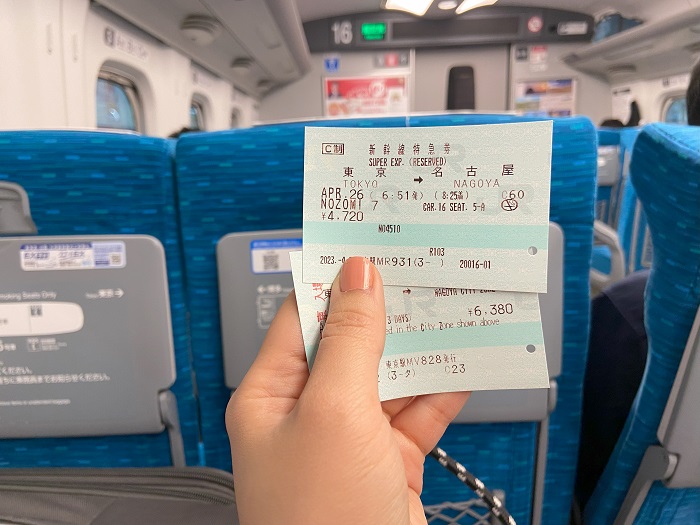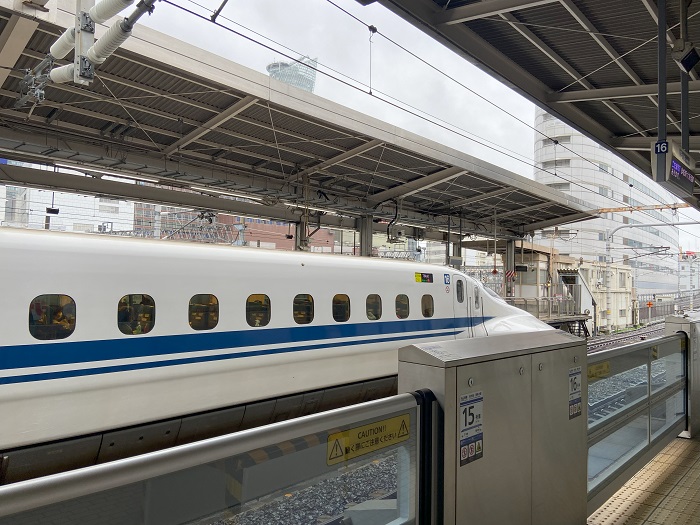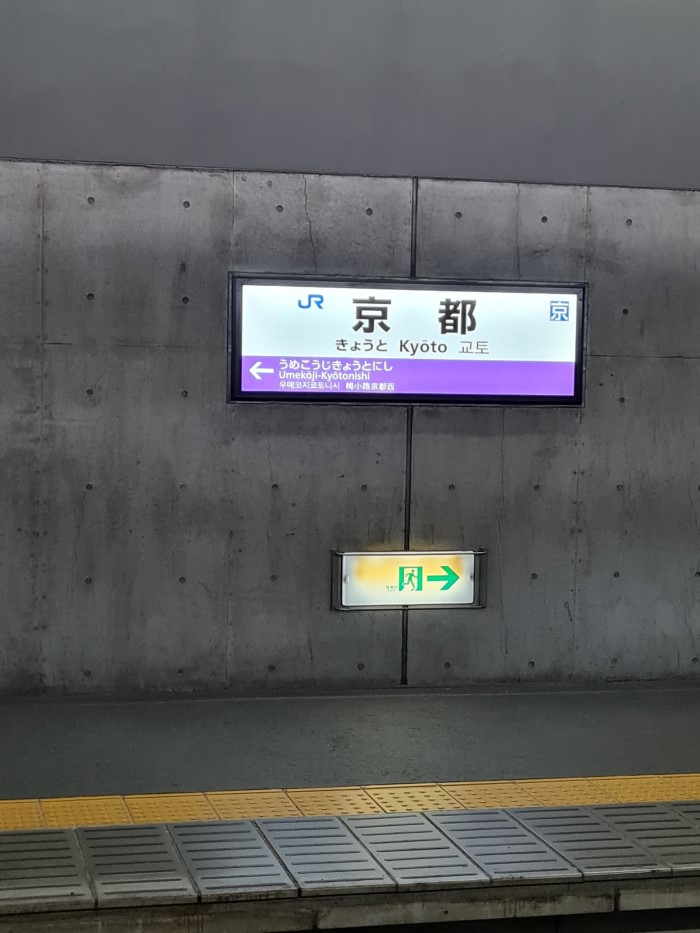Is English Japan's second language?
Clearing up the common misconception of English in Japan
Jun 4, 2023 | Read time 10 minutes
Table of contents
Introduction
In short, English is Japan’s second spoken foreign language. When I was traveling around Japan, a common misconception amongst tourists and travelers is that English is spoken widely and you can get by easily with just English alone.
Although English is taught as a mandatory language in Japanese schools and many Japanese people can speak it, English is only common in the major cities like Tokyo, Kyoto, etc.
Japanese is the countries primary language and spoken by 99% of the population. English, Italian and German are popular foreign languages, but accounts for the minority of languages spoken.
A recent study suggests that 72% of Japanese people “don’t speak English” or “only list words”
Implications for Travelers
English may not be widely spoken in Japan, particularly among the older generation and those outside academic settings. However, don’t be disheartened! While navigating the country, you’ll encounter English in various forms, such as signs, menus, and transportation announcements, providing a helping hand during your adventures.
So when you get lost and need directions from a local - probably you would have a better chance asking a student than a elderly person.
What Proportion of English Speakers in Japan?
It is estimated that somewhere between 8% and 30% of the Japanese population would have some level of proficiency in English.
In major cities this percentage is even higher. As an example, the Tokyo Metropolitan Government carried out a survey revealing that approximately 40% of residents have at least some ability to communicate in English.
English is a mandatory part of the high school curriculum in Japan, so this would mean that a significant portion of the population will have studied English at some point in their lives.
A 2013 survey by Cross Marketing Co., Ltd., that sampled 1,200 Japanese people between 20 and 49 found the following about English proficiency:
-
Despite demonstrating above-average proficiency and interest in English as students, many Japanese individuals' skills and interest often decline as they enter the workforce and age.
-
The survey revealed that 41.6% of respondents acknowledged their inability to speak English while an additional 30.4% reported their English communication was limited to basic expressions such as greetings and ordering food. Therefore, over 70% of those surveyed had difficulty conversing fluently in English.
-
Among respondents in managerial roles, more than 50% confessed a lack of English fluency. As expected, those employed in sectors where English is necessary (like tourism, hospitality, and academia) indicated a higher proficiency in English.
Regarding the respondents' interest in improving their English skills, a significant 57% expressed a desire to learn more English.
As of writing, Japan ranks 80 out of 111 countries in terms of English proficiency - with a EF EPI score: 475
We can see that the major cities have higher English proficiency scores than the others:
| City | Score |
|---|---|
| Tokyo | 522 |
| Kyoto | 512 |
| Yokohama | 506 |
| Sapporo | 505 |
| Osaka | 504 |
| Kobe | 490 |
| Kawasaki | 485 |
| Nagoya | 479 |
| Fukuoka | 470 |
Note on EF EPI scores
- EF EPI score 500 - 549: means they have moderate proficiency - eg able to write professional emails, attend meetings
- EF EPI score 450 - 499: means low proficiency - eg able to have short casual conversations, understand emails
History of English in Japan
English education in Japan goes back to the mid-19th century, marking Japan’s end of a long isolation and starting to interact with the rest of the world.
-
In the late 19th century, the first formal English language teaching in Japan was by Christian missionaries. These missionaries established schools where they primarily imparted English instruction for religious reasons.
-
The early to mid-20th century during the Meiji Restoration - Japan to embrace Western education systems, particularly those of America and England. This resulted in English textbooks being imported from the West. Although this has the focus of reading and translation, instead of spoken English.
-
With World War II in the 1940s led to a pause in English education because of its links to Western nations.
-
Post-World War II, from the 1950s through the 1960s, Japan entered a period where it needs to rebuild. As part of this, the government introduced initiatives to revamp English education. The education system started prioritizing oral communication skills, marking conversational English as an essential part of language instruction.
-
In 1989 (during the Heisei era), the Japanese government aimed to improve English education and enhance English language proficiency among the Japanese people, specifically in educational institutions such as schools and universities.
With globalization, the significance of English in Japan is even greater.
English proficiency has become a prerequisite in many Japanese firms, and the need for English instruction has surged in various sectors, including business, tourism, and academia.
Tips about English in Japan
- Urban areas such as Tokyo typically provide more English translations compared to other cities like Nagoya. This is evident in street signs, pamphlets, and the language abilities of staff and local residents. So, when planning a trip to rural regions, it might be beneficial to acquire some basic Japanese language skills.
- The proficiency in English often declines with age, with the younger generation generally more fluent than the older ones. So, when in need of help, seeking assistance from a student might yield better results.
- Familiarizing yourself with a few basic Japanese phrases can significantly enhance your communication experiences.
- Consider investing in a phrasebook or language learning app, or memorizing some crucial Japanese travel phrases, to help you manage basic communication.
- Make use of public transportation. English translations are generally available for signs, station names, and departure boards.
- Acquiring a Suica pre-paid card can simplify your travels, as it’s usable for buses, subways, trains, taxis, and even food purchases at convenience stores. It greatly reduces the need for daily communication in Japanese.
- Map out your primary travel routes and secure accommodations in advance to avoid on-the-spot interactions that might cause stress.
- Keep a printed list of your main destinations written in Japanese, which you can show to others while on your journey. This tactic can be particularly helpful when taking taxis.
- Utilize tourist information centers to their fullest. Most major ones have English-speaking staff and offer English brochures. You might also avail of discount coupon codes by presenting your foreign passport at some of these centers.
Some phrases to consider remembering includes:
- Good morning - Ohayo gozaimasu
- Good day - Konnichiwa
- Good evening - Konbanwa
- Goodbye - Sayounara
- Thank you (very much) - Arigatou (gozaimasu)
- That’s delicious - Oishi desu
- Nice to meet you - Yoroshiku onegaishimasu
- Where is (place)? - (Place) wa doko desu ka?
- Excuse me - Sumimasen
- I’m sorry - Gomen Nasai
- How much does it cost? - Ikura desu ka?
- I understand - Wakarimasu
- That’s OK - Dai joubu desu
- Please say that again - Mo ichido onegaishimasu
- I don’t understand - Wakarimasen
- I don’t speak Japanese - Nihongo ga hanasemasen
- Do you speak English? - Ei-go ga hanasemasu ka?
Summary
Generally, English is the second spoken foreign language in Japan. Other foreign languages spoken include German and Italian.
Even though this is the case, Japanese is still the primary language in Japan and not a lot of people will have high proficiency in English.
English proficiency is higher in the major cities such as Tokyo, Kyoto, etc but gets lower as we move around to the country side. If you stick to the touristy parts, then most of the staff will be able to speak English - hotel, shop clerks, restaurants, etc.
So if you plan to travel to Japan and staying out of the touristy spots make sure to know a bit of Japanese. There are a lot of English signage - such as in stations, restaurant menus and in shops.
If you find yourself lost, my tip would be to ask the students for directions in English - this is because English is mandatory in schools and they kids will likely be more fresh with their English skills than the older generation (who have not need to use English for a few years).
References

Do you need a visa to get JR Pass?
May 23, 2023Navigate Japan like a pro with our comprehensive guide on the JR Pass and visa rules.

Can you use JR Pass for Shinkansen?
May 23, 2023Yes you can use the JR Pass for the Shinkansen. Only exception is the Nozomi and Mizuho train services!

What does the JR Pass NOT cover?
Jun 3, 2023Transportation options that the JR Pass does not cover
About me
Hi there, I am Alex and I love sharing my recipes and travel tips.
I share recipes that I have encountered during my travels. My blog focuses on budget travel and offers tips on how to save money while still having a great experience.